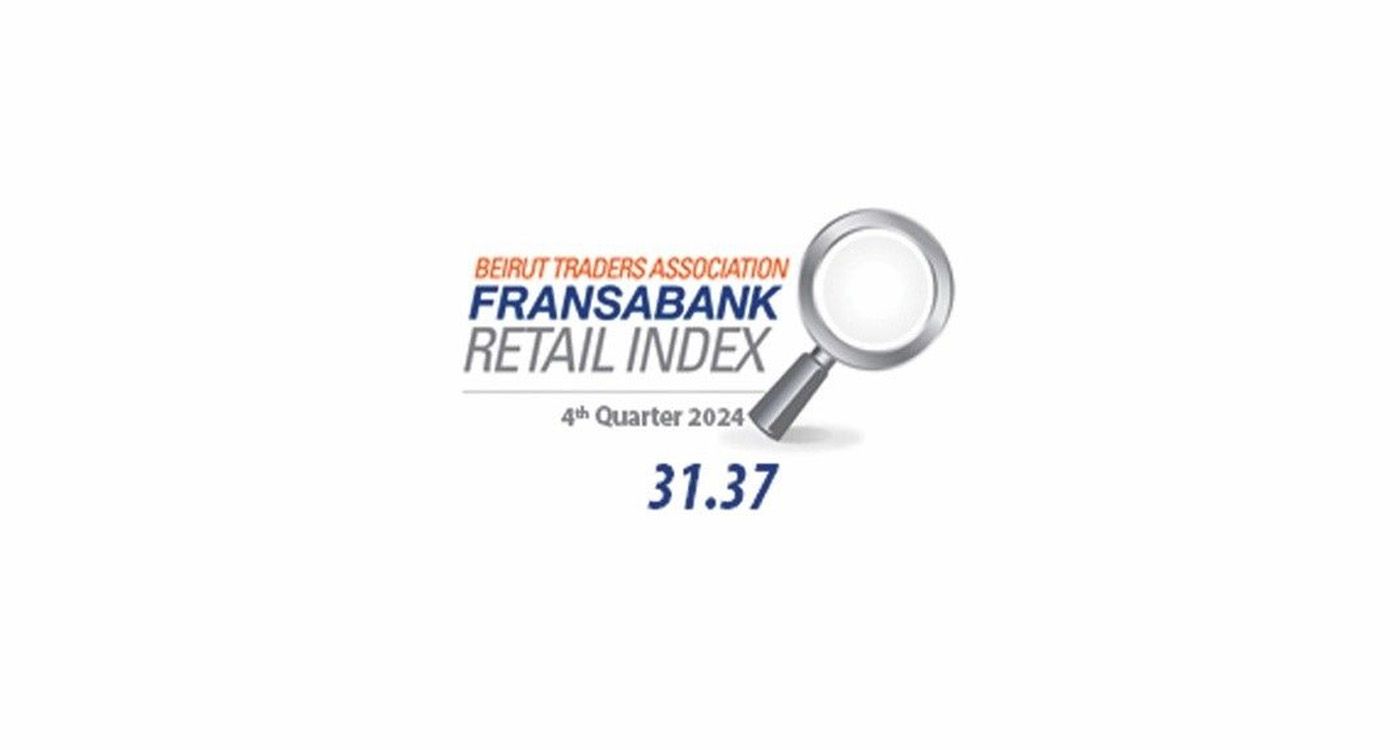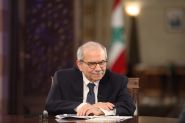
The Beirut Traders Association – Fransabank Retail Trade Index for the fourth quarter of 2024 (Q4-2024) recorded a value of 31.37, indicating a modest recovery in commercial activity, accompanied by cautious optimism about short-term improvements. In contrast, the index for the third quarter of 2024 had reached 35.06, reflecting a continued downward trend, with an actual quarterly drop of 18.83%. The only exception was fuel sales, which recorded a 14.63% increase in volume. Overall, the index plummeted by 29.34% compared to the fourth quarter of 2023.
It should be noted that the benchmark index value (100) corresponds to the fourth quarter of 2019. Meanwhile, according to the Central Administration of Statistics, inflation for this quarter rose by 6.86%.
The study specifies that no report was published for the third quarter of 2024 due to the outbreak of war, prompting a cautious wait-and-see approach amid the evolving situation. Nevertheless, figures were closely monitored, and both overall and sector-specific results were calculated to ensure the continuity of the index.
Despite the ceasefire that took effect on November 27, commercial activity remained weak compared to the previous quarter. This downturn stemmed from a lack of consumer confidence in short-term economic stability and continued restraint in household spending, which remained focused on essential goods such as food, medicine and fuel.
Turnover figures for Q4 showed a sharp decline across various sectors, worsened by business closures, supply chain disruptions and employee absenteeism due to mobility challenges. The final month of the year was not enough to reverse the downturn.
Moreover, the significant drop in expatriate visitors during the holiday season – following the ceasefire announcement just four weeks before the festive period and after a sharp decline in summer tourism due to fears of an impending war – further weakened market performance.
Despite efforts to boost domestic spending – such as the resumption of VAT refunds at Beirut International Airport via Global Blue and retailers’ Black Friday promotions across all sectors – the situation remained challenging.
On the financial level, the Central Bank (BDL) reported a modest increase in foreign currency reserves, which surpassed $10 billion, along with a rise in fresh bank deposits. However, Lebanon remains on the Financial Action Task Force’s grey list. Meanwhile, the Lebanese pound remains stable at LBP 89,500 per dollar, with no major fluctuations in the foreign exchange market despite persistent economic uncertainties.



Comments